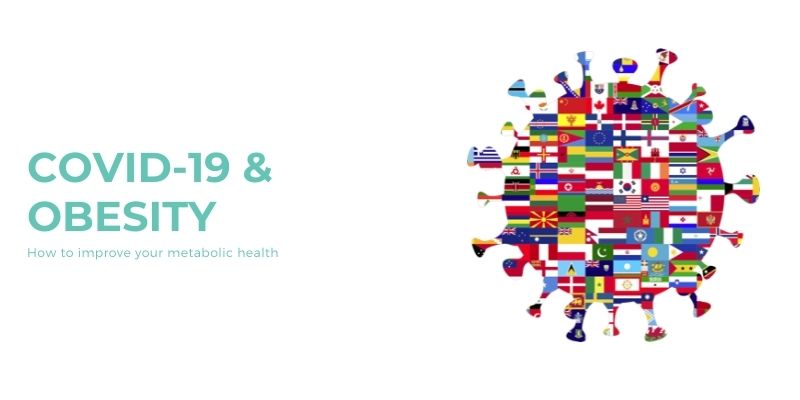Coronavirus - Obesity increases risks from COVID-19 – How to improve your metabolic health
Coronavirus - Obesity increases risks from COVID-19 – How to improve your metabolic health
The coronavirus outbreak was first identified in Wuhan in December 2019 and declared a pandemic on 11 March 2020 - just over 4 months ago. It seems like a lifetime! Since that time, we have seen significant death rates in many countries. However, as medical information slowly emerged, it became obvious that a fit, healthy person was less at risk of dying. Why was this? After examining existing studies, experts find that being obese or overweight puts you both at risk of serious illness or death from COVID-19. And, the greater the weight carried, the higher the risk.
That, sadly, all makes pretty gloomy reading. But there is a solution. As you are aware, UK Prime Minister Boris Johnson contracted COVID-19 in March and suffered touch-and-go moments in intensive care. It was, in his words, ‘a wake-up call’ and we well know that such experiences can be life-changing - as is the case here. Having admitted being obese (even though he cycles regularly), he is now championing a massive attack on how to reduce obesity figures in order to fight COVID-19. This is marvellous in terms of creating awareness but the advice regrettably leads people down the wrong track.
Fact: Sickness absence costs the UK businesses £91 billion per year due to lost productivity.
That is just a horrific figure – if you are running your own small company, this can have a bearing on your profit. Think on that!
Figures show that 50% of the British diet comprises processed foods. Yes, 50%! Therein lies the problem. These very foods have hijacked our appetite, increased our cravings and the end result is we just keep on eating. It’s a vicious cycle. Whilst we admire the banning of TV and hopefully online advertising for ultra-processed foods until after the 9 pm watershed, we are disheartened at the attack on ‘Fats’ being unhealthy. Yes, vegetable oils are desperately unhealthy. The question we should ask ourselves is ‘What are the healthy fats?’. To name a few: full fat dairy, cheese, natural yoghurts, extra virgin olive oil etc. All these products are taboo under the current guidelines.
You are probably saying ‘I understand that as I have been told to eat low-fat’. I was – and knowing what I know now, what a joke that was! Were you aware that low-fat anything has a high sugar content? Oh, and now we are going to be counting calories more than ever. Well, all well and good but, since personally ditching calorie counting and focussing on a low carb healthy fat regime, I have never felt better. Whilst we love exercise and cycling is marvellous, it’s important to know that you just cannot out-cycle a bad diet. So what are we actually saying here?
‘Poor metabolic health means poor immune health’ Dr Aseem Malhotra speaking on BBC Breakfast TV, Tuesday 28 July.
Let’s look at the definition of metabolic health?
Metabolic health – refers to a general healthy condition, with normal levels for all biomarkers – e.g. hormones such as insulin, and other blood biochemistry markers such as glucose, triglycerides etc. – without the use of medication.
What if there is a much healthier solution and we are able to boost our own health – all by shifting back to the concept of real food? This involves learning what foods to eat for optimal health, weight loss, improved mood, better physical performance, more energy as well as being able to reduce your medications. Have you ever been on a high-carb-weight-gain-then-yo-yo-dieting-going-nowhere routine? Well, so had I. And guess what I found? I found that by following our LCHF Programme that I was never hungry (honestly I used to eat every 2 or 3 hours before), had no cravings (and I had before although I didn’t acknowledge it), had loads more energy, lost weight, felt mentally and physically better and found I had a love affair with food again.
Just think what a difference feeling like that would make to your life?
So what do you need to do?
- avoid all processed foods
- exclude sugar
- eliminate grains
- eliminate high carbs
- eat lots of green leafy veggies
- eat ample amounts of good fats (never low-fat)
Key message: Eat Real Food
For more information and help on how to change your diet, click on the link below.



